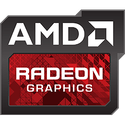Monday, March 4th 2024

AMD Working on an AI-powered FSR Upscaling Algorithm
AMD CTO Mark Papermaster confirmed that AMD is working on a new upscaling technology that leverages AI. A key technological difference between AMD FSR and competing solutions NVIDIA DLSS and Intel XeSS, has been AMD's remarkable restraint in implementing AI in any part of the upscaler's pipeline. Unlike FSR, both DLSS and XeSS utilize AI DNNs to overcome temporal artifacts in their upscalers. AMD Radeon RX 7000 series GPUs and Ryzen 7000 CPUs are the first with accelerators or ISA that speed up AI workloads; and with the RX 7000 series capturing a sizable install-base, AMD is finally turning to AI for the next generation of its FSR upscaling tech. Papermaster highlighted his company's plans for AI in upscaling technologies in an interview with No Priors.
To a question by No Priors on exploring AI for upscaling, Papermaster responded: "2024 is a giant year for us because we spent so many years in our hardware and software capabilities for AI. We have just completed AI-enabling our entire portfolio, so you know cloud, edge, PCs, and our embedded devices, and gaming devices. We are enabling gaming devices to upscale using AI and 2024 is a really huge deployment year." In short, Papermaster walked the interviewer through the 2-step process in which AMD is getting into AI, with a hardware-first approach.AMD spent 2022-23 introducing ISA-level AI enablement for Ryzen 7000 desktop processors and EPYC "Genoa" server processors. For notebooks, it introduced Ryzen 7040 series and 8040 series mobile processors with NPUs (accelerated AI enablement); as well as gave its Radeon RX 7000 series RDNA 3 GPUs AI accelerators. Around this time, AMD also introduced the Ryzen AI stack for Windows PC applications leveraging AI for certain client productivity experiences. 2024 will see the company implement AI into its technologies, and Papermaster couldn't be more clear that a new-generation FSR that leverages AI, is in the works.
Sources:
No Priors (YouTube), VideoCardz
To a question by No Priors on exploring AI for upscaling, Papermaster responded: "2024 is a giant year for us because we spent so many years in our hardware and software capabilities for AI. We have just completed AI-enabling our entire portfolio, so you know cloud, edge, PCs, and our embedded devices, and gaming devices. We are enabling gaming devices to upscale using AI and 2024 is a really huge deployment year." In short, Papermaster walked the interviewer through the 2-step process in which AMD is getting into AI, with a hardware-first approach.AMD spent 2022-23 introducing ISA-level AI enablement for Ryzen 7000 desktop processors and EPYC "Genoa" server processors. For notebooks, it introduced Ryzen 7040 series and 8040 series mobile processors with NPUs (accelerated AI enablement); as well as gave its Radeon RX 7000 series RDNA 3 GPUs AI accelerators. Around this time, AMD also introduced the Ryzen AI stack for Windows PC applications leveraging AI for certain client productivity experiences. 2024 will see the company implement AI into its technologies, and Papermaster couldn't be more clear that a new-generation FSR that leverages AI, is in the works.

70 Comments on AMD Working on an AI-powered FSR Upscaling Algorithm
4090 as a mandatory is only a thing if you're not satisfied with non-RT gaming. That's uncommon, most gamers can live with zero RT effects enabled.
I don't see a reason for avoiding 4K monitors if you can afford spending 500+ USD on a GPU.
if you're gaming humble choice no wonder you haven't found anything that will bring your computer to its knees, the games they sell must be on the light side of system requirements as to keep the subscriber count up. they haven't had great games worth the sub in years though, at one point I had logged in to skip the month 15 consecutive times and that was when I decided that it wasn't worth even keeping my grandfathered Classic account and I canceled it.
appsolutelywonderful.com/humblechoice/
I know you want to tell me that my PC cannot do what I see it do but that is the same as saying that Humble Choice is not worth it. For $13.99 it is pretty good. You are not a Gamer as you don't need to know about a Game for it to be good. It does not matter though because when I am Gaming, you are the last person I think about.
Now a rabbit out of a hat would be competitive IQ and retain compatibility, perhaps XeSS style where there are multiple codepaths, where it will always use the best acceleration method available based on detected hardware. This presents challenges for optics though i suppose.
It's probably just that Intel wants to have the advantage on their own GPUs. And I don't mind that at all, as long as we get all three options in every game. Hopefully DirectSR will make that really easy and AMD gets on board (they didn't want NVIDIA Streamline).
Hopefully AI FSR will come to at least the level of XeSS, but we'll see.
Maybe another year or two then AMD will catch up to where Intel is today with upscaling tech, and NVIDIA was two years ago.
I guess it's to be expected though, getting console level IQ on a GPU architecture designed for consoles, and which struggles to capture more than 15% of PC marketshare, even with the popularity of Radeon iGPUs in laptops.
My personal prediction is that AI FSR will become decent when the console refreshes with tensor core equivalents are released, and there's actually a userbase that can run the AI acceleration.